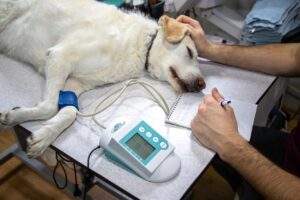Physical Symptoms of Liver Damage? Know How to Check These

The liver is the largest internal body organ about the size of a football. It is situated just under the rib cage at the right side of the abdomen. The liver is a crucial part of the body to help digest food and remove toxins from the body according to Dr. Vivek Vij who stands as the best gastroenterologist.
The liver may get damaged due to numerous factors namely genetics, alcohol abuse, obesity, hepatitis, or prolonged unhealthy eating habits which lead to liver failure.
Long-standing liver disease such as cirrhosis can be life-threatening. It completely damages the functioning of the liver. However, early treatment may help treat the disease. The liver has the caliber to heal and repair itself. When you choose healthy eating habits and perform regular physical activity, your liver repairs itself in a span of a few days or weeks.
Following are some physical symptoms of liver damage:
Acute liver disease may not show early symptoms of liver disease. However, you may notice certain symptoms when the liver is damaged to an extent that it fails to function properly.
- Itchy skin
- Dark urine color
- Pale color of stool
- Extreme tiredness
- Vomiting or nausea
- Swelling of the legs and ankles
- Pain in the abdomen or swelling in the abdomen
- Jaundice
- Loss of appetite
- Bloating
- Mental confusion or seizures
- Bad breath because of liver disease
- Easy bruising and bleeding
Book your appointment with your physician when you feel some of the above mentioned symptoms worry you. If you experience liver pain, seek immediate medical help.
Liver pain can be intimidating. It feels like a palpitation sensation in the stomach which can be discomforting. This is the signal that something is fishy inside the abdomen.
Liver pain symptoms:
- Exhaustion
- Itchiness
- Decrease in appetite
- Jaundice
- Dark brown urine swelling in the legs and ankles
Causes:
All of you must wonder what may be the cause of such a life-threatening disease. It is vital to be aware of what may cause liver damage to avoid being the victim of this disease or seek help if required.
Liver disease may be caused due to several factors such as infection, genetics, cancer, immune system abnormality, and other causes. Let’s study each cause in detail.
- Infection:
Viruses and parasites may infect the liver leading to inflammation that disturbs the functioning of the liver. This infection may be caused due contaminated water consumption, through blood, semen, contaminated food or coming in contact with the person who is already infected. The most common cause of infection are:
- Hepatitis A
- Hepatitis B
- Hepatitis C
- Immune system abnormality:
Some people are autoimmune meaning in some people, the immune system starts attacking certain healthy parts of the body which may cause damage to the liver. The following are diseases of autoimmune:
- Autoimmune hepatitis
- Primary biliary cholangitis
- Primary sclerosing cholangitis
- Genetical:
Liver damage may also be caused due to genetic inheritance. An abnormal gene inherited from parents may cause various substances to build up in the liver causing liver damage. Genetic liver disease comprises of the following:
- Wilson’s disease
- Hemochromatosis
- Alpha-1 antitrypsin deficiency
- Cancer and other growth:
The examples of cancer include liver cancer, liver adenoma, bile duct cancer. The other cause of cancer includes:
- Certain herbal compounds
- Chronic alcohol abuse
- Certain medications
- Fat buildup in the liver also called non-alcoholic fatty liver disease
Risk factors:
There are certain risk factors that may lead to liver damage:
- Obesity
- Over consumption of alcohol
- Unprotected sex
- Diabetes
- Family history of liver disease
- Tattoos or body piercing
- Blood transfusion before 1992
- Injecting blood using a used needle
- Exposure to other people’s blood
- Exposure to toxic chemicals
The treatment for liver disease at an early stage is vital. If liver disease is not treated at an early stage, it will develop over the course which can be life-threatening. To avoid liver damage, try to limit alcohol consumption, maintain a healthy weight, get vaccinated for hepatitis virus, take medication prescribed by your doctor and eat healthily.
How to check liver damage?
To check the functioning of the liver, the following are some tests required to diagnose if there is a risk of liver damage:
Tests such as ultrasound, CT scan, and MRI may show if the liver is damaged or healthy. Even liver biopsy may be performed to check if the liver tissues contain damaged cells which tells if the liver is damaged and also helps in the diagnosis of liver disease.
Liver tests are vital to understanding the right treatment required to cure liver disease. Your doctor will initially ask about family history and perform a physical examination. Later, the doctor may request to undergo the following tests:
- Blood tests:
A group of blood tests may be conducted to check the functioning of the liver. Some blood tests help to diagnose specific liver problems required to diagnose liver disease.
- Imaging tests:
Tests such as CT scan, MRI and ultrasound can show the liver image to diagnose liver disease.
- Liver biopsy:
Liver biopsy is the medical procedure where an incision is made through the needle and a sample of liver tissue is collected to examine it for liver disease.
The treatment for liver damage will depend on your health condition and diagnosis of liver disease. Some acute liver diseases can be treated by bringing in certain lifestyle changes such as limiting alcohol consumption, maintaining a healthy weight, and regular physical activity. Other chronic liver diseases can be treated with medications or may require surgery. End-stage liver disease can only be treated with a liver transplant when all other treatment options have been eliminated.







